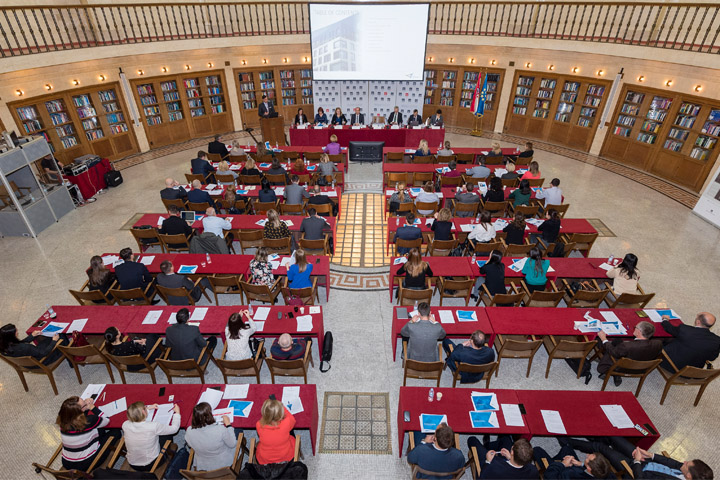
"Croatia's participation in the Single Resolution Mechanism will bring about numerous changes to the operation of the Croatian National Bank and of all banks operating in the country. The most important change involves the participation of Croatian representatives in the decision-making and governance of the Single Resolution Board on an equal footing with the representatives of other member states of the banking union," said CNB Vicegovernor Roman Šubić at the workshop Novelties Related to the Republic of Croatia Joining the Single Resolution Mechanism, organised on 2 December 2019 by the Croatian National Bank in cooperation with the Single Resolution Board and the State Agency for Deposit Insurance and Bank Resolution.
Vicegoverner Šubić added that these changes would influence the modes of cooperation, reporting, decision-making methods and the imposition of measures in the area of bank resolution operations. In addition, Croatia's participation in the Single Resolution Mechanism obliges national resolution authorities to collect and pay annual contributions to the Single Resolution Fund, and an amount of funds will have to be transferred from the national resolution fund to the Single Resolution Fund on Croatia's entry to the Single Resolution Mechanism. The Single Resolution Board and the State Agency for Deposit Insurance and Bank Resolution will inform banks about the details of this obligation in spring next year.
In late May this year, Croatia submitted a request to the European Central Bank to establish a close cooperation with the Croatian National Bank in the exercise of supervision of credit institutions under the Single Supervisory Mechanism. This step is part of the procedure for the country's entry to the Exchange Rate Mechanism (ERM II) and subsequently to the euro area. Once adopted, the European Central Bank's decision on establishing a close cooperation with the Croatian National Bank will assign Croatia, in line with regulations, the status of a participating member state in the Single Resolution Mechanism.
Expressing their satisfaction with the fact that the representatives of European and national resolution authorities made timely efforts to inform domestic banks on these changes, the representatives of credit institutions stated that an open and constructive cooperation would be the most conducive to ensuring smooth transition to the new European resolution framework.
